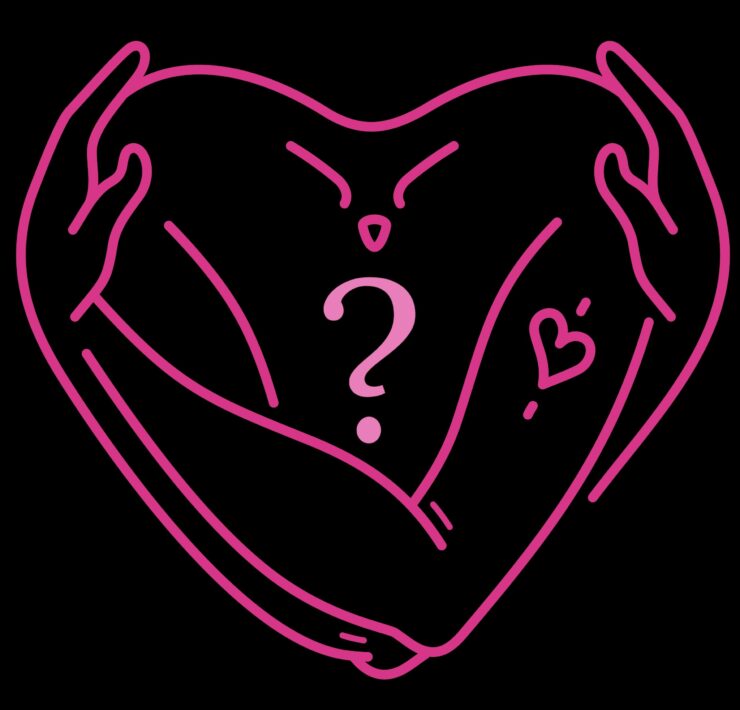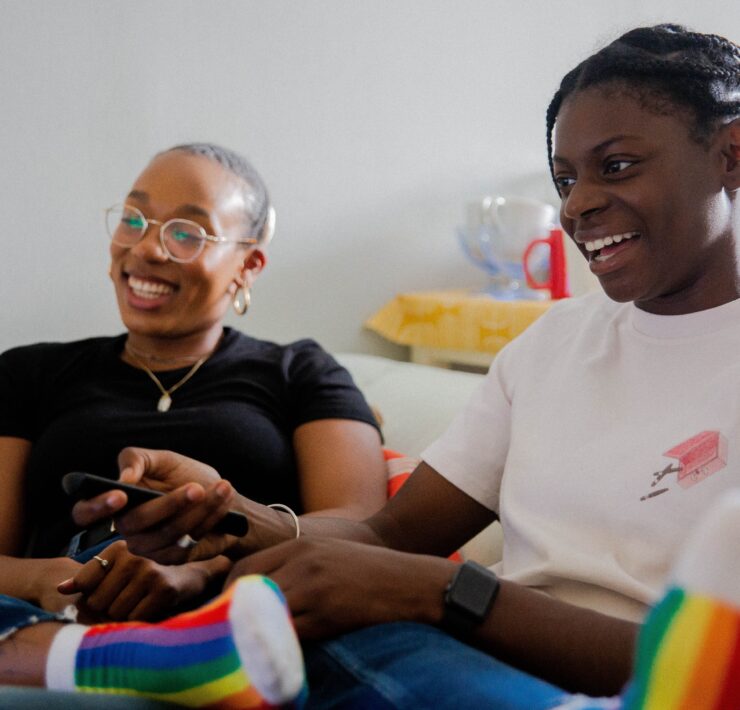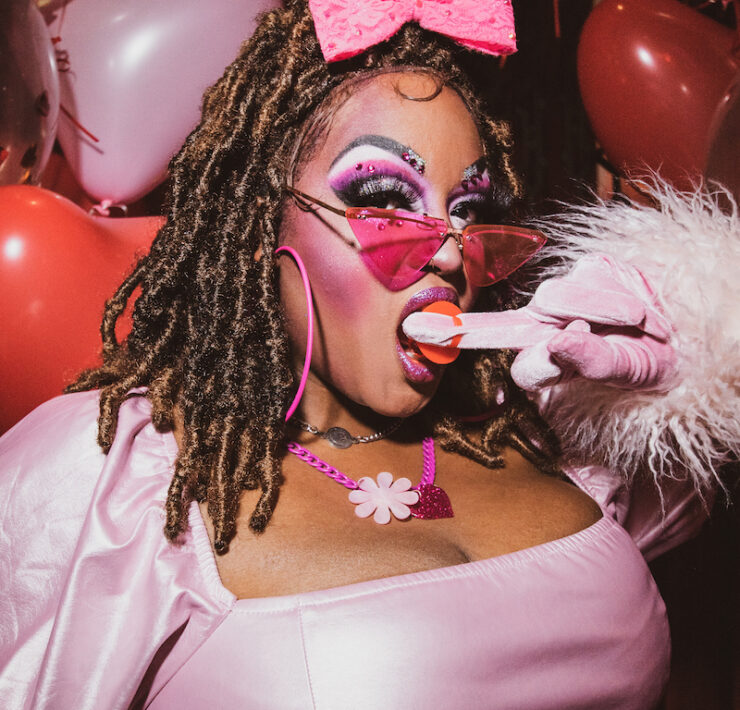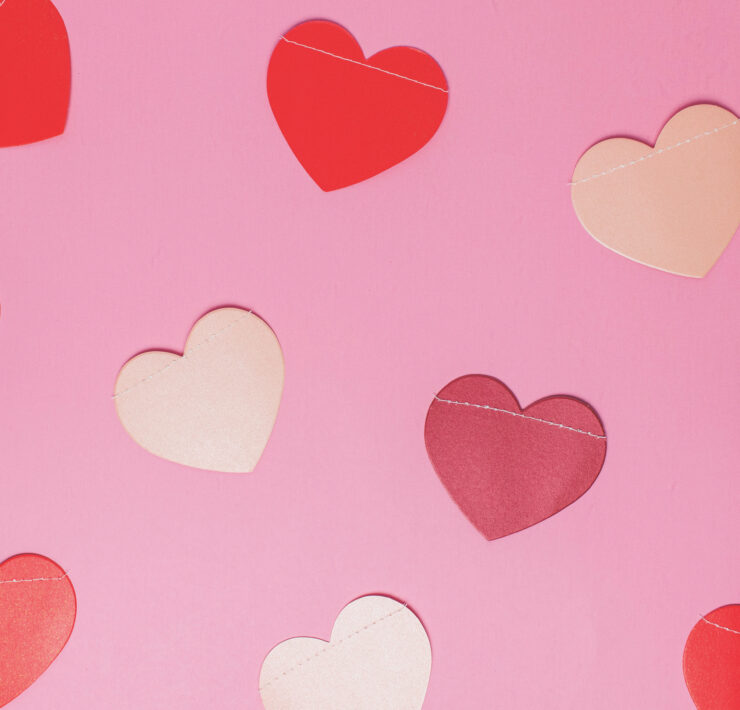To have loved and lost: Life — and friendship — after separation

Alison Wisneski is a contributing writer for Out Front. A…
According to Rob Hardy and Jonathan Welford, founders of The Gay Dating Expert, it’s more common for members of the LGBTQ community to keep in contact with exes.
“The gay community is their replacement family and they do not want to lose connection with that,” Hardy said.
But how do we navigate upon breaking up? Who gets what? How long should exes give each other space? And what happens when each person takes room to grow — where does it take those relationships in the future?
From lovers to longtime friends
Sarah Fry, 30, isn’t willing to end her friendship with ex Kim Rutherford, 31, any time soon.
“Kim’s my best friend. There’s not a single person that I’ve dated that hasn’t met her. I say ‘Kim and I have known each other for a long time, we were pretty much married, and then we weren’t, and now we’re best friends. If you’re not okay with me seeing my ex, then we can’t date. I’m not going to give up Kim.”
Sarah and Kim met more than ten years ago as counselors at a summer camp in Missouri. Kim was out of the closet and in a relationship with someone back home, while Sarah was still deeply closeted. They fell for each other — and were fired from their positions for being gay.
Kim came to stay with Sarah in Michigan with Sarah’s family, and later the couple moved to Colorado, separately for two years, then living together in Fort Collins, considering themselves married.
Five years into the relationship, things changed.
“Honestly, it was very mutual; even sort of planned,” Rutherford said. “Things had gotten to the point where we had tried therapy and we knew we needed to go our separate ways, but the holidays were coming and Sarah was always at Christmas with my family, and it just felt weird to do it beforehand. We weren’t mad at each other; nobody was cheating…it was just time.”
But they were comfortable living together for another six months, until their lease came to an end, they decided.
“I always joked with Kim that we were really good roommates, but not really good wives,” Sarah laughed.
But when Sarah moved to a different bedroom, feelings that had been masked began to emerge for both of them.
“Kim was my first girlfriend. I hadn’t established my own friend base; I didn’t know how to date!” Sarah said.
Kim said, “I felt a lot of guilt associated with my new freedom. It was something I had wanted for a couple years, but I remember finding someone’s bracelet on the floor in her room and I was just devastated. She had someone else in that bed.”
Sarah remembers being angry with Kim — blaming her for not being able to make friends, feeling she had been walked over. Kim remembers feeling only sadness. When their lease finally ended, contact between them tapered off until Sarah decided to cut Kim out of her life completely.
Years passed. Kim took a job as an occupational therapist and moved from Fort Collins to Denver, while Sarah began commuting to her social work job in Lafayette. Sarah remembers deciding one day, out of the blue, to invite Kim and her girlfriend to her place for a game night.
“It was fun. It was kind of like old times,” Sarah said. “I remember I cleaned my apartment really well —because Kim likes clean apartments. I wanted to impress her.”
Slowly, a friendship re-emerged. Sarah found herself with more free time after breaking up with her partner. They started meeting for dinner once a week — at a spot halfway between Denver and Fort Collins until Sarah finally moved to Denver as well — and haven’t stopped since.
“It went from being planned, to, well, this,” Kim said, laughing. “We never miss a week of dinners. We talk daily.”
And from Sarah: “I can’t picture my life without Kim in it. There’s a lot of appreciation, it’s definitely full circle.”
They said their time apart helped them discover themselves more fully, and they’re now getting to know each other again with the deep knowledge that can only come from a romantic relationship.
But would they get back together? They don’t see it happening, they both said.
“It’s always the person we’re dating (who worries); it’s never been an issue for us,” Kim said. “Whoever we’re dating at the time always has questions, like ‘How can you guys hang out but never want to sleep together?’ And I’m like ‘No, it’s Sarah!’ That thought never even crosses my mind.”
A mother’s dream
“The fear of that breakup — what are my friends going to think, what is my family going to think — those fears are huge. But they paled in comparison to the fear I had when this little child came into my home. That breakup, as horrible and sad and hard as it was, was nothing compared to the fear of parenting. I can’t express to you the fear.”
In 1996, then-34 Melissa Preston Vaughn had just gotten out of an intense relationship. She wasn’t looking to date, but friends insisted on introducing her to their childhood friend, Julie. They had what became an 11-year relationship.
“As far as we were concerned and as far as our families were concerned,” Vaughn said, “this was a life-long relationship. It never occurred to us that we would ever split.”
When Vaughn was given a two-year paid sabbatical, from work, she began to spend time with a friend who was raising two young children — and fell in love with the mothering role. At the end of the sabbatical she told Julie she wanted children of her own. Julie had a different opinion.
“I think that I secretly always thought that because of our love, she would change her mind (on children),” Vaughn said. “I told Julie that I wouldn’t go through the rest of my life without being a parent.”
In a therapy session, they realized their life goals seemed to have brought them to a breaking point. Vaughn wanted children. Julie wanted to live without the responsibility of children, near the mountains spending time outdoors and with friends. At the end of the session, the therapist said it would be their last time meeting with her.
The two went home and faced the facts. They split up their things.
A week later, Julie was moved out and Vaughn was starting the process of adoption.
Initially, her attempt at adopting came to a heartbreaking dead-end — one riddled with discrimination toward her as a single lesbian. She later found herself walking up to a lesbian couple with a baby. She complimented the child’s cuteness and asked how they were adjusting to life as parents.
When the women explained that they had gone through a foster-to-adopt program as out lesbians, Vaughn was sold.
“I entered their process, and within eight months, Lillian came into my home. My beautiful daughter. It was all meant to be,” Vaughn said.
The adoption agency’s home visits brought on a time of introspection into Vaughn’s life. She had to share all aspects of who she was, including her breakup with Julie. In all, the process toward making the adoption official took a year — a time that Vaughn was able to focus on herself for the first time, getting to know herself and her future daughter.
Five years later, Lillian is six years old — “going on sixteen,” Vaughn said, laughing.
She and Julie had struggled after the breakup to find new social circles and identities, but after the life-changing event of adopting a child, Vaughn was ready to move forward and rekindle a friendship.
“We’re still each other’s emergency contact,” Vaughn said. “Julie still knows me more than anyone; I still know her more than anyone. She’s changed a lot, but still, we’re very loving and kind toward each other. Lillian calls her Aunt Julie.”
She discovered an admiration for Julie for being true to herself and completely honest about not wanting children. She said they’re both doing exactly what they wanted to be doing at this point in their lives.
“It’s important to know what you want in life, but it’s equally important to know the things you don’t want. Not enough people know that. She knew she didn’t want to be a parent; that’s important to know. We’ve been very supportive of each other. It was the right thing to do for both of us, and I’m happy,” Vaughn paused — “And she’s happy.”
A journey in identity
“The funny part about this whole thing now is that I’ve started dating a man, and I feel good about it. Three years later, it’s a whole cycle. I still haven’t been in a significant relationship with a woman, and it feels less urgent now than it did.”
Hana Low is a 24-year-old genderqueer nursing student with an interesting, busy background for their* young age. As a college sophomore in 2008, Hana began a romantic relationship with a friend of more than a year — a straight, cisgender** male named Joey. After a year studying abroad together, Hana and Joey decided to take their relationship to the next level and move in together — with other friends in a home.
“We had different rooms and different spaces and the buffer of four other people. We figured that even if we broke up, we were going to make it work; we were going to live in the same house.”
Hana paused. “You can maybe see where this is going.”
When Joey was away for a summer, Hana began developing feelings for another housemate, Sarah.
“We had come to this very vexing place. I had never been in a relationship with a woman before, though I have always identified as queer. At that point, I was like ‘What’s the deal? I need to figure this out.’”
Even though nothing physical had taken place with the housemate, Hana said they had to say something to Joey. Their strong romantic feelings and emotional ties to Sarah made them feel guilty enough. Hana thought that through being honest and open that the relationship might be modifiable, but Joey was not open to the change.
“I really loved Joey, and I really cared about him, but I knew I had to figure out this whole thing,” Hana said. “Could I be happy in a long-term monogamous relationship with a man as a queer person? Could I potentially never have romantic, intimate-type relationships with women or other queer people? I just was not sure.”
The breakup was devastating to both of them — each was the other’s first serious relationship that wasn’t long-distance, and now, as ex-partners, they still lived in the same house. They’d been through seven months of being together on two continents, supporting each other through their challenges, and seeing so much end was painful for both of them.
“It took a very long time for me to accept,” Hana said. “It was difficult for both of us, but I was very sad for many months. In a lot of ways I felt like it was my fault — why didn’t I buckle up and deal with these feelings and ‘what if’ situations?”
That relationship with Sarah never happened — leaving Hana with the feeling that the breakup didn’t need to happen either. They blamed themself.
“In some ways, it’s difficult to look back on the issues we were having, and I’m sure there were issues and certain points of non-compatibility, but I’m sure I’ve erased them and modified them to ‘The only reason this happened was the Sarah thing; it’s because I shared my feelings.’ I thought that sharing the feelings were enough, that sharing that dishonesty was the thing that needed to be dealt with.”
Hana and Joey continued living together until graduation, then drifted apart.
After the breakup, Hana focused their time on the queer community, going to queer-hosted brunches and volunteering with the Colorado Anti-Violence Program. They fell into a mindset that they weren’t truly queer until they had a relationship with a woman. They dated other queer people, but nothing ever lasted for more than a month.
“I was reflecting a lot on heterosexual relationships and not wanting to participate in traditional heterosexual relationship dynamics. I really wanted to feel queerness and feel what that was like by being in a same-gender relationship. I thought that being able to fully participate in the community was dependent on being in a queer relationship,” Hana said.
“Eventually I became really okay with being single and existing as a queer person but not as a queer person who was defined by a relationship. I wanted to know ‘What does it look like to participate in community and have strong relationships with other queers?’”
Hana is currently in a relationship with a man — which had not been part of the plan.
“I had kind of decided that if I was going to be in a relationship again, it was going to be with somebody who was very radical” they said; “an intersectional thinker, a feminist; if not vegan than totally okay with me being vegan; totally committed to anti-violence and anti-racism and deconstructing gender primaries. It was a lot of requirements. It seemed to me if I was going to find those requirements in an individual, I would be more likely to find those in a queer person.”
Hana’s current partner recognizes their queerness fully, Hana said — allowing Hana to participate fully in the queer community that they had finally felt that they joined on a deep level. In searching for what they believed was a necessary relationship, Hana found queer friendships and community that goes beyond who they are in a partnership — a whole individual in themself.
*Their: Used here as a gender-neutral pronoun.
**Cisgender: A person who identifies with the gender they were assigned at birth is referred to as cisgender. Contrasted with “transgender,” a person who does not identify with the gender they were assigned at birth.
.
PAGING DOCTOR LOVEBy Ryan Manning

.
He was cute. Engaging. A doctor. He actually paid for a round of beers. We talked for quite some time and he even asked about me as if he cared. At 34 years old, that was important to me. I really did have stories and thoughts to share. The normal 24 year olds I ended up on dates with never asked any questions about me, let alone offered to buy a round.
At the end of the date he made it clear that he wanted to see me again. Oddly, because of schedules, our next date was on Valentine’s Day. I gladly accepted. As with most guys I had met over the past few years I assumed that this wouldn’t go beyond a second or third date and my planned move to Denver, later in the year, wasn’t important information to share.
The Valentines Day date was a good one. I had my guard up, kept a distance, but eventually tried to be open and receptive. I was nervous as he sat near me on the couch and we talked. He had traveled the world, had amazing experiences and I was enthralled. I wanted to know more and found myself opening up over the course of the evening. It didn’t hurt that he was on call and received a few inquiries from the hospital. It’s quite a turn on to hear this doctor-man give orders over the phone to the nurse: “yeah, give him 50ccs of…”. Woof.
Over the course of the next few weeks we spent a few nights a week together. It was a month in when I knew I had to tell him about this move. I didn’t want to get any deeper as I assumed this may be a dealbreaker. I liked him a lot. Was he “the one”? I didn’t know. I just knew I liked the guy and enjoyed time with him. I needed to be respectful if I, truly, was going to put any more energy into moving. So, after a nice dinner and some drinks at the bar I told him.He took it in stride. We returned to his place that night, had sex and I went home the next morning. Things didn’t seem to change with the doctor. Our relations maintained, but I felt awkward and unsure. Two days later I was in Denver apartment hunting, albeit unsuccessfully.
After returning home we continued to spend time together. Then, one spring afternoon, I headed to his place. I found him in his backyard hosing his outdoor furniture down for the season. We had idle chit-chat, talked about him replacing the railing on his porch. Then, as we sat sharing a beer on the porch swing, he padded my knee, awkwardly, and said, “I think we should just be friends.” I knew it was coming. I felt it in the air when I arrived. I swallowed the statement as I swallowed a swig of beer. It was a large swallow, in both cases, burning a bit as it went down. I recovered quietly and agreed after a pause, “…especially with the move.” We both expressed how much we wanted to be friends and I left heated and uncertain. I returned home to some whisky and then began to question why I was so upset. I was the one going away.
The doctor and I had a great run. What we had wasn’t found in romance novels and I think we’d both agree that neither of us were overwhelmingly swept off our feet. I think I was upset at being rejected more than anything. And, honestly, the fear of moving was silently subdued by the underlying possibility of having a serious relationship with the doctor. I was trying to force a romance when I just wanted to distract from the fear of moving, from facing change and the unknown. Who was I going to be in Denver?
The doctor did make good on wanting to be friends. The friendship rules of engagement kicked in quickly. He always wanted to know if I was seeing anyone (“No, I’m moving, remember?” I’d say slightly annoyed), or how my sex life was. I had to warm up to asking such things in return; but I adjusted as I accepted the better outcome of our relationship.
He took me backpacking for my first time through Yosemite. I took him to his first IMAX movie. The friendship was building.
In taking the “lets be friends” request seriously I was able to keep a great person in my life. He encouraged and supported the move, knowing it was best. Denver is now my home and the unknown couldn’t be better anticipated as I find myself, simply happy, in the Mile High.
What's Your Reaction?
Alison Wisneski is a contributing writer for Out Front. A graduate student at Ilif School in Theology, she specializes in stories about LGBT people of faith.










